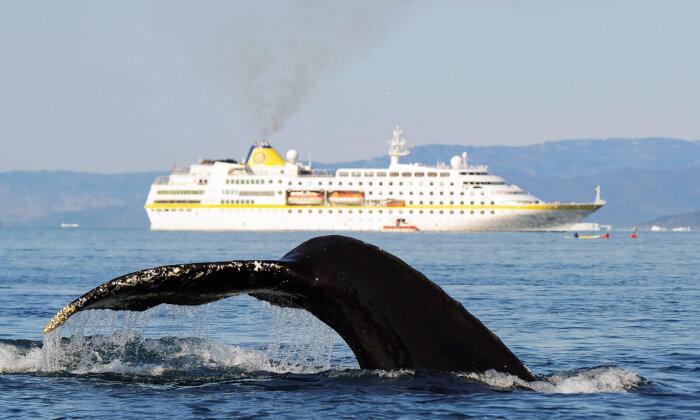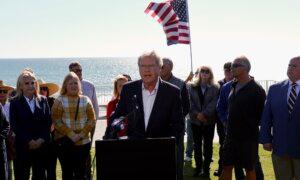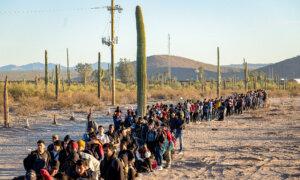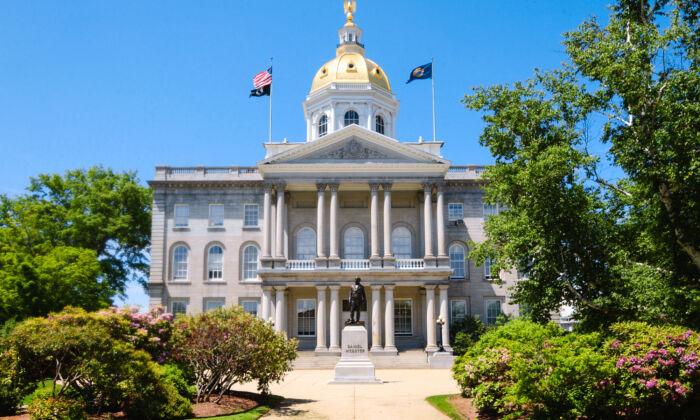Maine’s cruise ship industry is feeling the impact of illegal immigration.
U.S. Customs and Border Protection (CBP) has indicated it can no longer provide agents to meet international cruises this summer scheduled to dock in Eastport, Maine, according to Sen. Susan Collins (R-Maine), the only Republican representing any of the six New England states in Congress.
Ms. Collins said the agents were transferred to the southern border to help with the massive influx of illegal immigrants there under President Joe Biden’s open border policy.
“This is the flip side of the problems that we are now seeing on the southwest border also creating problems on the northwest border and the northern border in general,” Ms. Collins said.
Without CBP approval, passengers on cruise ships originating from a foreign port cannot disembark.
She made the comments directly to Department of Homeland Security (DHS) Secretary Alejandro Mayorkas at the April 10 Senate hearing on the DHS proposed fiscal year 2025 budget.
Ms. Collins warned Mr. Mayorkas that the lack of border agents would have a devastating economic impact on Maine.
“The cruise ship industry is vital to many Maine communities and it delivers millions in economic benefits to our state annually,” she said.
The Maine senator asked Mr. Mayorkas to look into what could be done to solve the staff shortages.
In outlining her concerns, she noted that Maine has seen a 73 percent increase in “migrant encounters” at its border since fiscal year 2023.
Chinese Marijuana Farms
Ms. Collins didn’t bring it up at the budget hearing, but she has led recent congressional inquiries into the hundreds of illegal marijuana farms run by Chinese migrants that are cropping up all over Maine.The inquiries have been made to top officials including FBI Director Christopher Wray, Director of National Intelligence Avril Haines, and Attorney General Merrick Garland.
At an April 18 hearing on the Department of Justice’s proposed 2025 budget, Ms. Collins asked Mr. Garland if he had a theory as to why China is “sending people illegally into our country to establish these grow operations?”
Mr. Garland replied that he did not.
“I don’t have a theory now,” he said. “Normally, I develop a theory by learning the facts from the different investigative entities that look into this. So, at this point, I don’t have a theory.”
Ms. Collins told Mr. Mayorkas that his proposed budget “does not do nearly enough to address the flood of illegal migrants and fentanyl entering the United States.”
Job postings, including dozens on social media, show the DHS is actively trying to recruit new border agents.
Some of the jobs are specific to the Houlton sector, which covers an area of Maine that borders Canada. The Maine sector is also actively recruiting for its Explorer Program, designed to help prepare youth for a future career as border agents, according to CBP.
Cruise Ship Industry Suffering
As part of her statements to Mr. Mayorkas about the impact that immigration is having on the state’s cruise ship industry, Ms. Collins cited a letter that she said CBP sent to the Eastport Port Authority indicating that the federal agency didn’t have enough manpower to accommodate four—“just four,” she emphasized—international cruise ships, slated to dock in the northern coastal community.Last year, the agency also told Maine that it could no longer provide border agents to process Canadian ferries that dock in Bar Harbor. As an option, it offered to provide them for the months they were needed, said Ms. Collins, but only if Maine would pay the agents’ full-year salaries.
Eastport Port Authority Executive Director Chris Gardner said in a statement that he was glad Ms. Collins brought the issue “affecting real operations in our parts of the world to the forefront.”
“Let us hope this work lends itself to us to finding the solutions we need to continue to grow our port and continue to bring much-needed economic activity to the entire region,” he said.
In a post about the issue on the Eastport Port Authority’s Facebook page, Mr. Gardner also suggested that the government is forgetting about immigration’s impact on smaller communities.
“Although the smaller communities vastly outnumber the larger centers across this country, they seem to lose ‘airtime’ to the issues of the urban centers that dominate most discussions,” he wrote.







